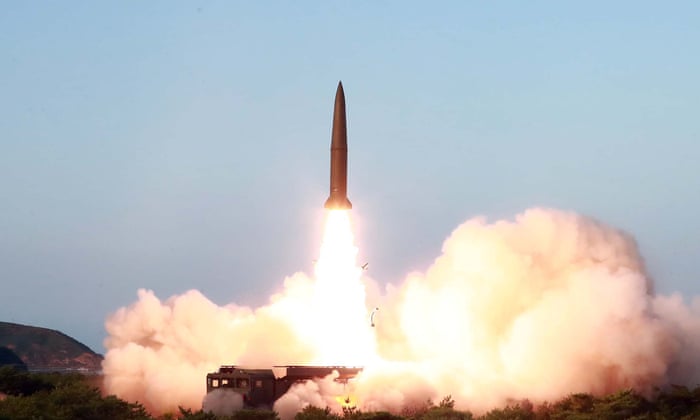North Korea fires at least one possible ballistic missile in its third weapons launch this month, officials in South Korea and Japan say, in apparent retaliation for new US sanctions against its continued testing.
SEOUL, South Korea — North Korea fired at least one possible ballistic missile in its third weapons launch this month on Friday, officials in South Korea and Japan said, in apparent retaliation for new U.S. sanctions. against his continual trials.
The South Korean Joint Chiefs of Staff said the weapon was fired to the east, but did not immediately explain where it landed or provide further details.
For its part, the office of the Japanese prime minister and the Ministry of Defense reported having detected the North Korean launch and pointed out that it could be a ballistic missile.
The Japanese coast guard issued a security advisory warning of an object that may have landed. In addition, he urged ships located between the Korean Peninsula and Japan, as well as in the East China Sea and the North Pacific, to “pay attention to the information and stay away when recognizing a falling object.”
The Joe Biden administration on Wednesday imposed sanctions on five North Koreans for their involvement in obtaining equipment and technology for Pyongyang’s missile programs, in response to this week’s first missile test, and said it would seek new sanctions from the United Nations. .
The Treasury Department’s announcement came just hours after the North claimed its leader Kim Jong Un on Tuesday oversaw a successful test of a hypersonic missile that it said will greatly increase nuclear “war deterrence.” from the country.
Tuesday’s was the second test of North Korea’s purported hypersonic missile in a week. In recent months, the hermetic nation has intensified tests with new nuclear-capable missiles designed to outperform the region’s missile defense systems, while continuing to expand its military capabilities amid stalled diplomacy with Washington.
In a statement carried by the Korean Central News Agency (KCNA), an unnamed Foreign Ministry spokesman defended the launches of the suspected hypersonic ballistic missiles as a legitimate exercise in self-defense.
According to the spokesman, the new sanctions underscore the hostile intention of the United States to “isolate and suffocate” the North despite repeated calls by Washington for Pyongyang to resume diplomatic work that is stalled by disagreement on the reduction of sanctions. and nuclear disarmament measures.
The North Korean spokesman also accused the United States of maintaining a “gangster” stance, and stated that the development of its new missile is part of its efforts to modernize its army and does not target any specific country or threaten the security of its neighbors.
“However, the United States is intentionally aggravating the situation even with the activation of independent sanctions, not content with referring the DPRK’s just activity to the UN Security Council,” the spokesman added, using the abbreviation of the country’s official name, Democratic People’s Republic of Korea.
“This shows that although the current US administration preaches diplomacy and dialogue, it remains engrossed in its policy to isolate and suffocate the DPRK… If the US adopts such a confrontational stance, the DPRK will be forced to react with more strength and security,” he said.
Flying at more than Mach 5, or five times the speed of sound, hypersonic weapons can pose a major challenge to anti-missile systems due to their speed and maneuverability.
These weapons were on the list of military targets that Kim presented early last year, along with multi-warhead missiles, spy satellites, long-range solid-fuel missiles and submarine-launched nuclear missiles.
Experts say North Korea will need years and more successful long-range tests before it has a credible hypersonic system.
The Biden administration has signaled that it is willing to resume talks with Pyongyang whenever and without preconditions. But the North has rejected the idea, saying Washington must first withdraw its “hostile policy,” a term used to describe its sanctions and joint maneuvers with the South Korean military.

